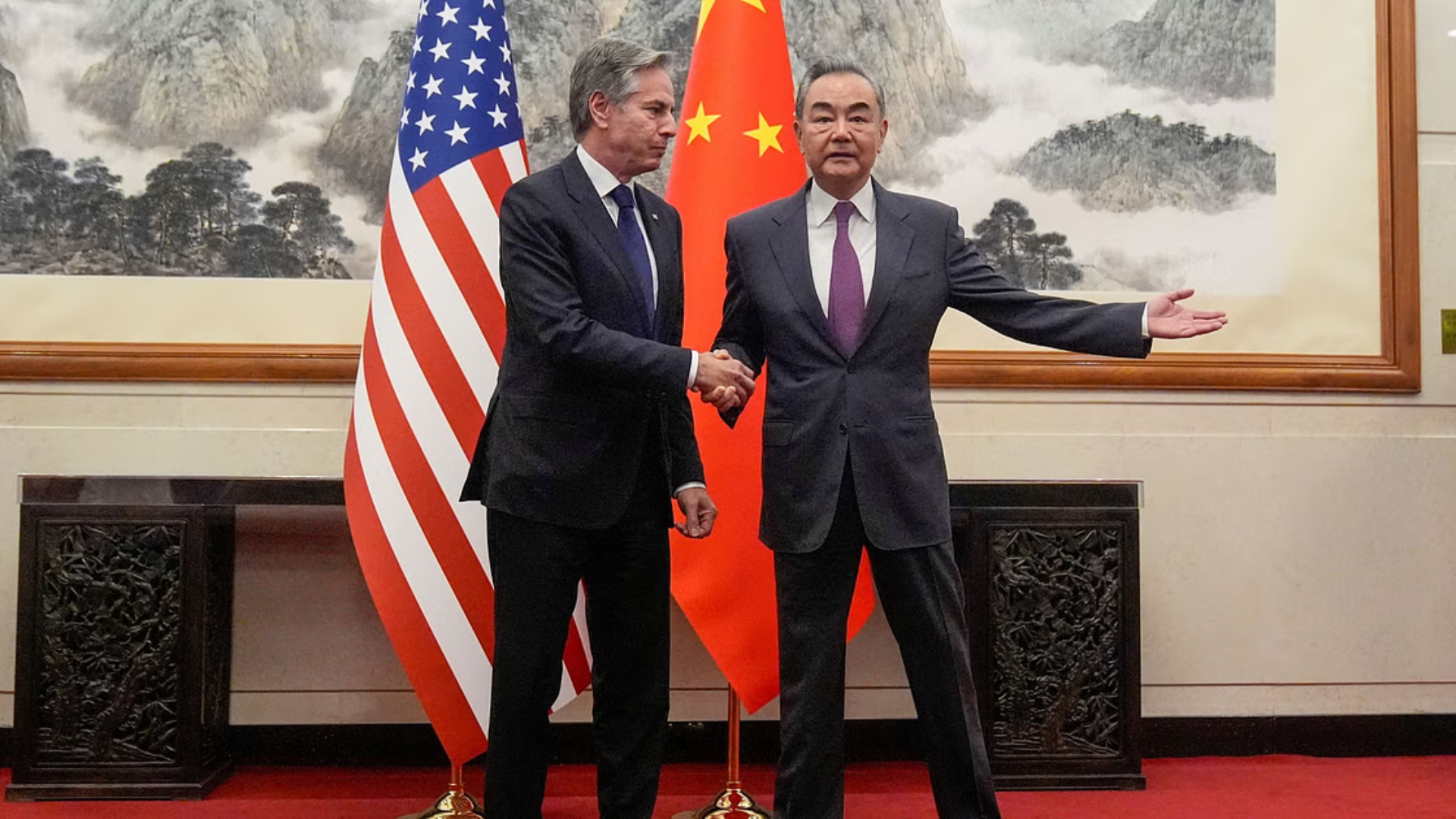Foreign Minister Wang Yi expressed concerns that the United States is hindering China’s progress, emphasizing this during talks with Secretary of State Antony Blinken, who is visiting Beijing to address trade and policy disputes between the two nations. Blinken is scheduled to have extensive closed-door discussions and a working lunch with Wang at the Diaoyutai State Guesthouse. Despite the intricate and expansive issues on the agenda, both sides aim to sustain positive momentum in the China-US relationship.
During their initial discussions, Foreign Minister Wang Yi conveyed to Secretary of State Antony Blinken that while the massive ship of China-us relations had achieved some stability, there were growing negative elements affecting the relationship. Wang highlighted that various disruptions were impacting the relationship, with China’s rightful development being unfairly restrained and its core interests encountering challenges.
In response, Blinken emphasized the necessity for “active diplomacy” to advance the agenda outlined by Presidents Biden and Xi during their meeting in San Francisco in November. This indicates a mutual recognition of the need for proactive engagement and dialogue to address the complexities and challenges within the bilateral relationship.
Secretary of State Antony Blinken stressed the importance of face-to-face diplomacy during his meeting with Foreign Minister Wang Yi. He emphasized that there is no substitute for direct, in-person discussions when it comes to resolving differences and avoiding misunderstandings or miscalculations. Blinken’s aim was to ensure clarity on areas of disagreement to prevent potential conflicts or misinterpretations.
Their meeting took place at a guesthouse within an expansive complex featuring villas, lakes, and gardens, historically used to host numerous foreign dignitaries. This setting carries symbolic weight, as it has hosted significant diplomatic encounters in the past, including visits by former U.S. President Richard Nixon. The choice of such a location underscores the importance and historical context of the discussions between Blinken and Wang, highlighting the gravity of their diplomatic engagement.
Before the meetings, U.S. State Department officials indicated that China’s support for Russia would be a significant topic. They mentioned that Washington is ready to take action against Chinese firms aiding in the retooling and resupplying of Russia’s defense sector. This assistance is seen as a potential threat to the broader China-US relationship, especially at a time when relations are gradually stabilizing.
The officials referenced previous events that strained relations between the two countries, such as then-House Speaker Nancy Pelosi’s visit to Taiwan in 2022 and the U.S. downing of a suspected Chinese surveillance balloon in February 2023. These incidents added tension to an already complex China-US relations. By highlighting these past events, the officials likely intended to underscore the delicate nature of the current discussions and the potential consequences of ongoing support for Russia’s defense industry.
Despite efforts such as increased high-level exchanges and working groups focusing on areas like military communication and global trade, significant differences persist between the United States and China. This divide was highlighted by recent events, including President Biden signing a bipartisan bill allocating $8 billion to counter China’s military capabilities, providing defense aid to Taiwan, and supporting Ukraine financially. These actions reflect ongoing tensions and differing priorities in the bilateral relationship.
The South China Sea dispute remains a contentious issue, alongside U.S. expectations for China to take more decisive action in curbing the production and supply of chemicals used in manufacturing fentanyl, a potent opioid.
Foreign Minister Wang Yi underscored China’s stance, emphasizing that the U.S. should not cross “red lines” related to sovereignty, security, and developmental interests, particularly referencing Taiwan and the South China Sea.
Blinken’s agenda includes a potential meeting with Chinese President Xi Jinping, although this has not been confirmed by either side. He is also scheduled to meet Wang Xiaohong, China’s minister of public security.
Before the talks, U.S. Treasury Secretary Janet Yellen emphasized that the Biden administration remains open to various options to address China’s overcapacity in industrial production. Yellen emphasized that China’s approach of exporting its way to economic growth is not acceptable to the global community, highlighting ongoing economic concerns in the china-US relationship.







